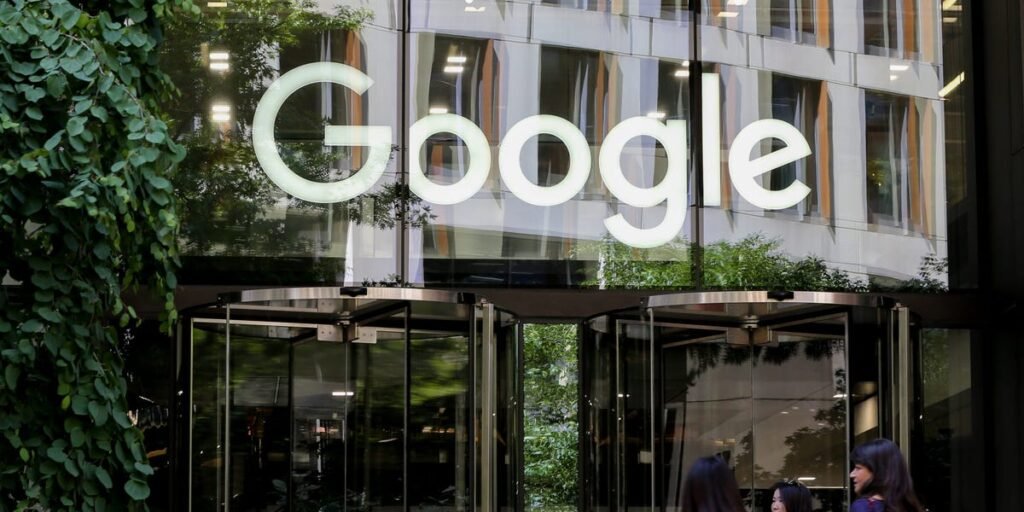Google is testing a new security system that uses facial-recognition technology at its campus in Kirkland, Washington — and early reaction from Google employees in the US is mixed.
The interior security cameras collect facial data and are designed to help prevent unauthorized individuals from entering Google’s campus, the company said. Google said its security team uses the data to identify people who may pose a security risk.
After news of the system was first reported by CNBC, Business Insider talked to Google employees at various campuses to find out what they thought about the change. The employees requested anonymity to speak freely but their employment has been verified.
One employee who frequently visits the Kirkland office where the technology is being tested told BI that they found out about the new system from reading about it in the news. They said the cameras are discretely placed on ceilings and don’t look different from other security cameras.
But the employee said it’s a “little dystopian” and people in the office have privacy concerns about the new system.
“A lot are concerned about facial data being stored by Google,” the employee said. “Data is extremely valuable.”
While people at the testing site can’t opt out of facial screening when entering the building, a Google spokesperson said the data is for immediate use and isn’t stored. The facial data was initially compared with ID badge images during early testing, but employees could fill out a form to opt out of their badge photo being stored, the spokesperson said. The badge ID images are no longer being used, they added.
Google said the new technology is solely implemented in its Kirkland office at the moment, but employees BI talked to wondered if the system could eventually be rolled out more widely.
An employee who works in the New York office said that they have no privacy concerns with facial recognition technology at the office. They said Google already has security surveillance all over its campuses so this will just make it easier for the security team to do their job.
However, an employee who works in San Francisco said they think the system could be used as a secondary method for monitoring office attendance. That employee said they’ve been previously flagged for not meeting the minimum number of in-person days.
A Google spokesperson said there were no known plans in place to use the security system for attendance tracking.
The Kirkland employee said some workers suspect the technology is a response to the sit-in protests against Google’s $1.2 billion joint contract with Amazon that provides services to Israel’s government.
The protest resulted in nine total arrests in Google’s New York and Sunnyvale offices, and about 50 employees being fired or placed on leave, according to a complaint filed with the National Labor Relations Board. Google said in a memo that protesters violated multiple company policies, including its code of conduct and policy on harassment, discrimination, retaliation, standards of conduct, and workplace concerns.
Google’s vice president of global security Chris Rackow, said at a staff meeting in May that video camera footage helped identify some of the employees who participated in the protest, CNBC reported.
Google has faced security threats in the past.
In 2018, a woman opened fire and injured three people at YouTube’s headquarters in San Bruno, California. The shooter’s relatives said that, prior to the shooting, she was “upset” with YouTube because of how her vegan-themed videos performed.
A Google spokesperson told BI that for years, the company has tested and implemented “new systems and protections to help keep our people and spaces as safe as possible.” In 2021, Google implemented fences at its headquarters in Mountain View, California, according to local publication Mountain View Voice.
An employee who works outside the Kirkland location said they think the new system would impact people working at larger offices who have experienced “some crazy” situations. They said the new system will “hopefully prevent those events from happening.”
“I personally don’t have too much of an issue with it and maybe even welcome it assuming it works well,” the employee said.
Do you have a story about Google? We want to hear from you. Contact the reporter at aaltchek@businessinsider.com from a non-work device and email.
Read the full article here

















